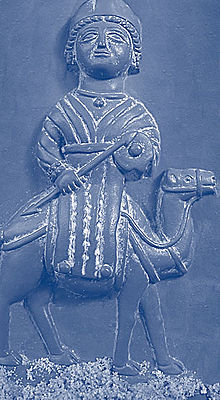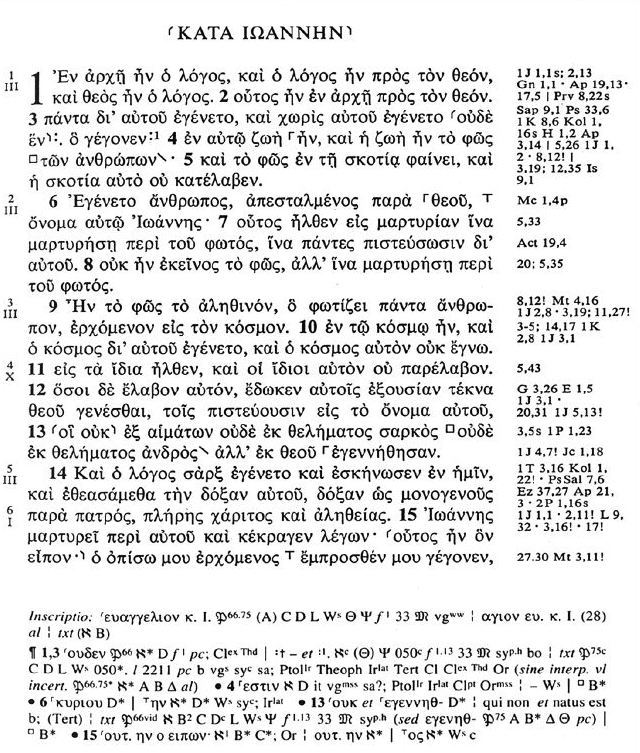
Wherever it could, the Qur’ān attempted to break down these fixed immutables among the Arabs. At times it failed and at other times it succeeded, so that its authority and rule in all of this depends on the movement of society and how far it accepts new ideas.
IN ARABIC CULTURE there is a commonly used phrase: “Even the whole Earth cannot change my word,”[1] which Arab men use to indicate that they will never change or alter their opinion, come what may. This is because, in the culture of the Arab male, changing one’s word or replacing it with another is considered to be the characteristic of a woman not of a man, and thus diminishes his authority and status. By rendering the word of a man something celestial, it turns it in effect into something sacred. If it comes down to Earth, it is defiled.
As a matter of principle, replacing a word with another has always constituted a negative value amongst Arabs ancient and modern, even if changing one’s word were to act to one’s advantage. For it is in the nature of the dominant, ancestral, masculine culture to turn the word of an Arab eastern male into something associated with heaven, something sacred that ‘the whole Earth cannot remove’, and to grant the male a value that higher than that of whatever is effeminate or female. The man’s position is in heaven while the woman’s position is on Earth. So these would naturally have been amazed at a god changing his word or replacing one ruling with another.
In this way the heavenly word of God, according to these men, is a sacred word that cannot alter or be replaced, and if this God were to replace His word, he would therefore forfeit His rank as a manly god to one of an effeminate god, or even a goddess!
This is the essence of the accusation made by the polytheists against Muhammad’s God: that He was a God that was altering His word whenever He replaced one ruling with another:
Such of our revelation as We abrogate or cause to be forgotten, but we bring (in place) one better or the like thereof. Knowest thou not that Allah is Able to do all things? [Qur’ān II,106]
That is, according to the Al-Muyassar Commentary:
Whenever we change in a verse or remove it from hearts and minds, we replace with something more useful to you, and we bring something similar with respect to its obligation and its reward, and in everything there is wisdom. For did you not know, O Prophet and your people, that God is mighty and is capable of all things?
The concept of changing or substituting one text with another is connected with the verse on divine power, and what is instinctively meant by this is the impotence of the recipient to imitate it, or that the speaker is alone qualified to substitute his own word. The recipient is still accepted without alteration! This is what links in the mind the concept of sacralisation with consolidation, and that any substitution undertaken by humans to the divine text earns a negative connotation through its alternative description as ‘distortion’. It is on this basis that the emendations of Jews and Christians to their holy texts is received with derision by Muslims who use the alternative description ‘distortion’ with reference to these emendations. This may be an indicator of another difference between two concepts or two worlds: pragmatism – which is sees no problem in humans emending the divine text if there is a benefit in so doing, and idealism – that holds tight to the divine word just as it is.
Suggested Reading
Wherever it could, the Qur’ān attempted to break down these fixed immutables among the Arabs. At times it failed and at other times it succeeded, so that its authority and rule in all of this depends on the movement of society and how far it accepts new ideas. For it is also one of the unchangeable verities that mankind – male or female – has the capacity to change his or her mind if it conflicts with an ever-changing reality or if the opinion is no longer suitable for the historical circumstance or condition that brought it about. In so doing he denies the word of a man any characteristic of sanctity by dint of the fact that he denies this quality of sanctity to the word of God, since a God that changes His opinion does not wish His word to become sacralised but rather intends to establish the approach of replacing a word or a ruling with another word or ruling that is more beneficial to mankind. This more beneficial opinion of God, or a later ruling of His (the ‘abrogating’ ruling), He did not intend to be the last word or something that cannot be replaced, so much as a ruling He saw as more appropriate to the issue that it was addressing.
The idea of ‘perfecting religion’ in the following verse from the sūrat al-Mā’ida:[2]
This day have I perfected your religion for you and completed My favour unto you, and have chosen for you as religion Al-Islam [Qur’ān V,3]
induced legislators to consider the Qur’ān as embracing the totality of problems and issues of society for all times and places. While what is actually meant by ‘perfecting religion’ in the verse is simply the completion of the process, not the completion of the Text, since the context of this verse is one of devotional ritual not a discussion on societal difficulties that vary in nature as times change.
Similarly, the halting of the Revelation with the death of the Prophet Muhammad, led legislators to the delusion that the ruling of an abrogating verse was something sacrosanct, a later ruling that was therefore consolidated. But these legislators did not take into consideration for the process that permitted the substitution of one ruling for another, without its necessarily implying the consolidation of the later ruling. This is what the Prophet Muhammad, and after him the enlightened Companions and Followers such as ‘Umar ibn al-Khattāb and others, established as a precedent.
By this process God became an eastern Arab male
But this approach, alas, was not destined to endure and died with the passing away of the Messenger, and of the enlightened Companions that followed him. Its place was occupied by the concept of ‘abrogated verses’ which accorded the abrogating verse the status of God’s final word on the matter that cannot be replaced. By this process God therefore became an eastern Arab male, an obstinate person who cannot change his mind and one who perpetuates this nostrum of the eastern male, and similar sentiments, that make out of holding to one’s opinion and word a gauge of one’s virility and, in this case, divinity!
The process of abrogating verses in the sense of sanctifying a later ruling was a later, innovated process which has no presence in the Text of the Qur’ān. What this means is that the later ruling does not represent the cancellation of an earlier ruling but rather represents an alternative or supplementary view, appropriate to the circumstance it addresses, one that is to be evaluated in a defined historical context. The Qur’ānic text is entirely governed by this dialectical relationship between itself and reality. In this sense it is a historical text, not a meta-historical text or one that is in some way beyond history. This in no way detracts from its value, so long as its approach accommodates new issues and allows for going beyond previous rulings, even if these abrogated earlier ones.
God’s replacement, in this case, of His word constitutes a distinguished feature and is not a shortcoming. It is a positive, not a negative, value, in that it makes His word something that is easy to understand and flexible to apply, and something which consolidates the approach of dealing with issues that change and are superseded, as if He were producing something on the lines of the following equation: changing reality = changing opinion or rule.
[1] There are other Arabic phrases synonymous with this such as: “My word and nothing but”; “A man is bound by his word” and other such expressions that judge manliness according to whether one changes one’s word or viewpoint. They place a positive value to sticking to one’s opinion, and conversely a negative value to changing it, irrespective of the truth or falsity itself of the opinion.
[2] The full verse runs: Forbidden unto you (for food) are carrion and blood and swine-flesh, and that which hath been dedicated unto any other than Allah, and the strangled, and the dead through beating, and the dead through falling from a height, and that which hath been killed by (the goring of) horns, and the devoured of wild beasts, saving that which ye make lawful (by the death-stroke), and that which hath been immolated unto idols. And (forbidden is it) that ye swear by the divining arrows. This is an abomination. This day are those who disbelieve in despair of (ever harming) your religion; so fear them not, fear Me! This day have I perfected your religion for you and completed My favour unto you, and have chosen for you as religion al-Islam. Whoso is forced by hunger, not by will, to sin: (for him) lo! Allah is Forgiving, Merciful.


